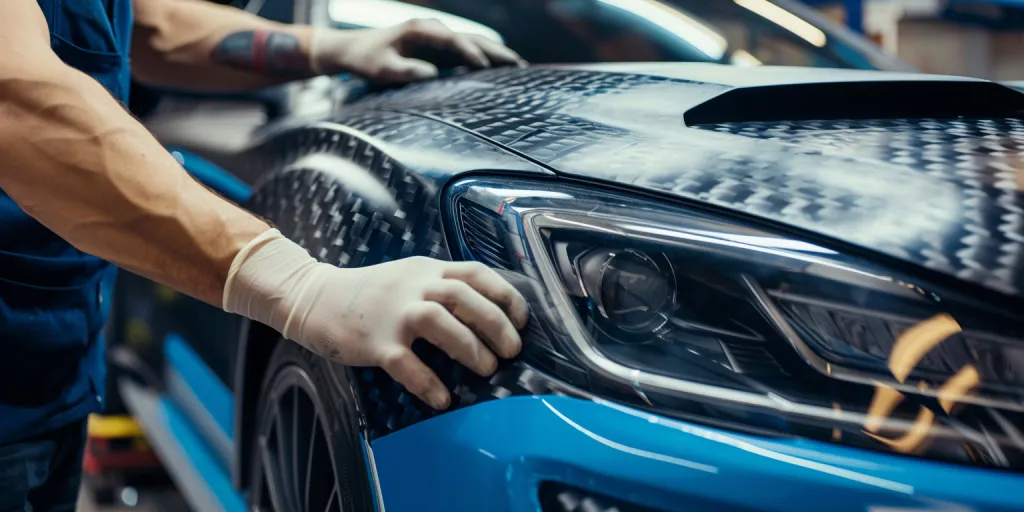Vinyl wrap is more than just a trend; it’s a game-changer in vehicle customization and protection. This versatile product offers an affordable and reversible alternative to traditional paint jobs, allowing car enthusiasts to personalize their vehicles with ease. In this comprehensive guide, we’ll explore everything you need to know about vinyl wrap, from its benefits to its application.
Table of Contents:
– What is vinyl wrap?
– What does vinyl wrap do?
– How to choose the right vinyl wrap
– How long do vinyl wraps last?
– How to replace a vinyl wrap
– How much does a vinyl wrap cost?
What is vinyl wrap?
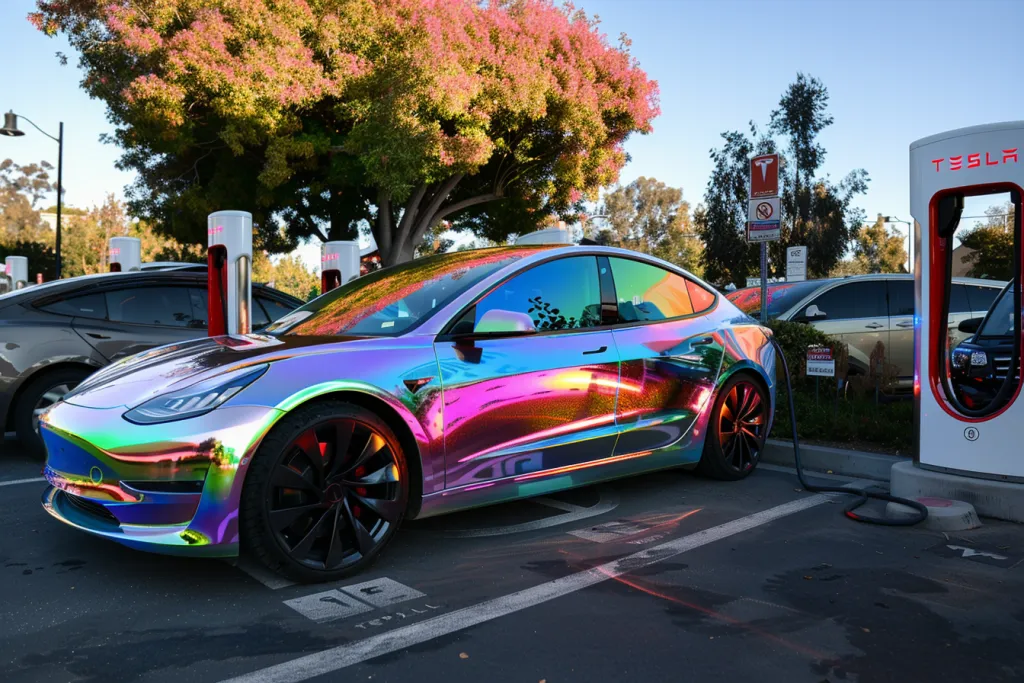
Vinyl wrap is a thin, flexible, adhesive film made from polyvinyl chloride (PVC) that can be applied to the exterior of vehicles. It comes in a wide range of colors and finishes, including matte, gloss, satin, metallic, and even textured options like carbon fiber. This versatility makes it an attractive choice for those looking to customize their car’s appearance without the commitment or expense of a new paint job. Additionally, vinyl wraps can also serve as a protective layer, shielding the original paint from scratches, UV rays, and minor abrasions.
The technology behind vinyl wrap has evolved significantly, offering high durability and ease of application. Modern vinyl wraps are designed with air release channels to prevent bubbles during installation and can be stretched to fit over curves and into crevices, ensuring a smooth, seamless finish. The adhesive used is strong enough to hold the wrap in place for years but can be removed without damaging the underlying paint, making it a reversible process.
What does vinyl wrap do?
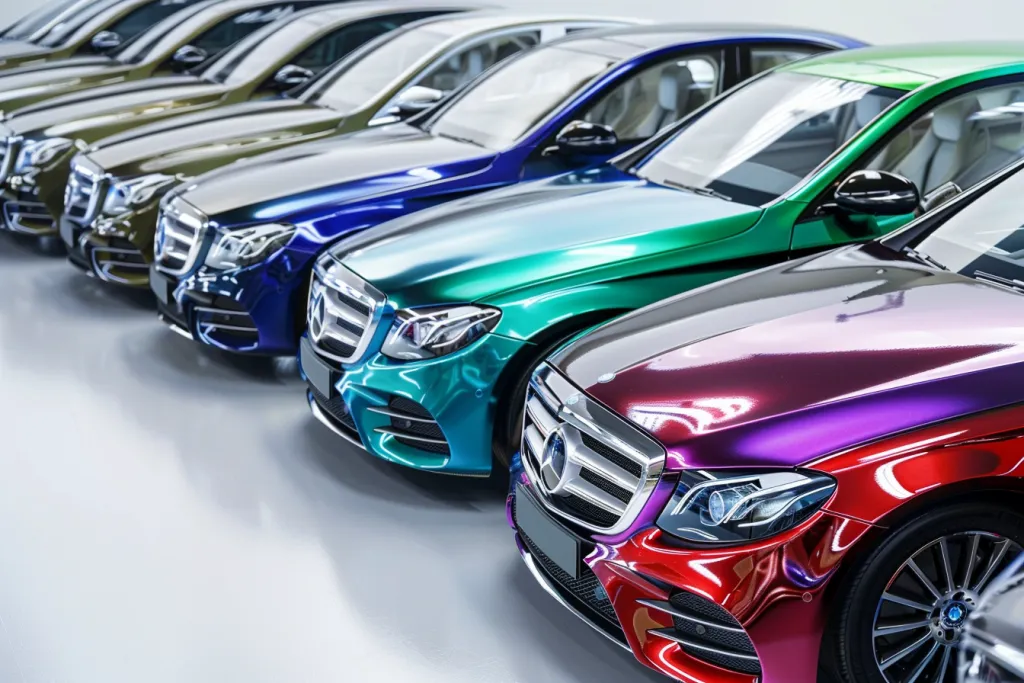
Vinyl wrap transforms the appearance of a vehicle, providing a fresh, new look without the permanence or cost of a traditional paint job. It’s an ideal solution for those looking to personalize their vehicle, whether it’s changing the color, adding racing stripes, or applying custom graphics. Beyond aesthetics, vinyl wrap offers practical benefits. It acts as a barrier against environmental elements like sun, rain, and dirt, and reduces the risk of scratches and chips from road debris.
Moreover, vinyl wrap can enhance the resale value of a vehicle. By protecting the original paintwork, it keeps the car looking newer for longer. For businesses, vinyl wrap can serve as mobile advertising, transforming a vehicle into a moving billboard with company logos and contact information. The flexibility and reversibility of vinyl wrap make it a popular choice for temporary promotions or updating branding without the need for a new paint job.
How to choose the right vinyl wrap
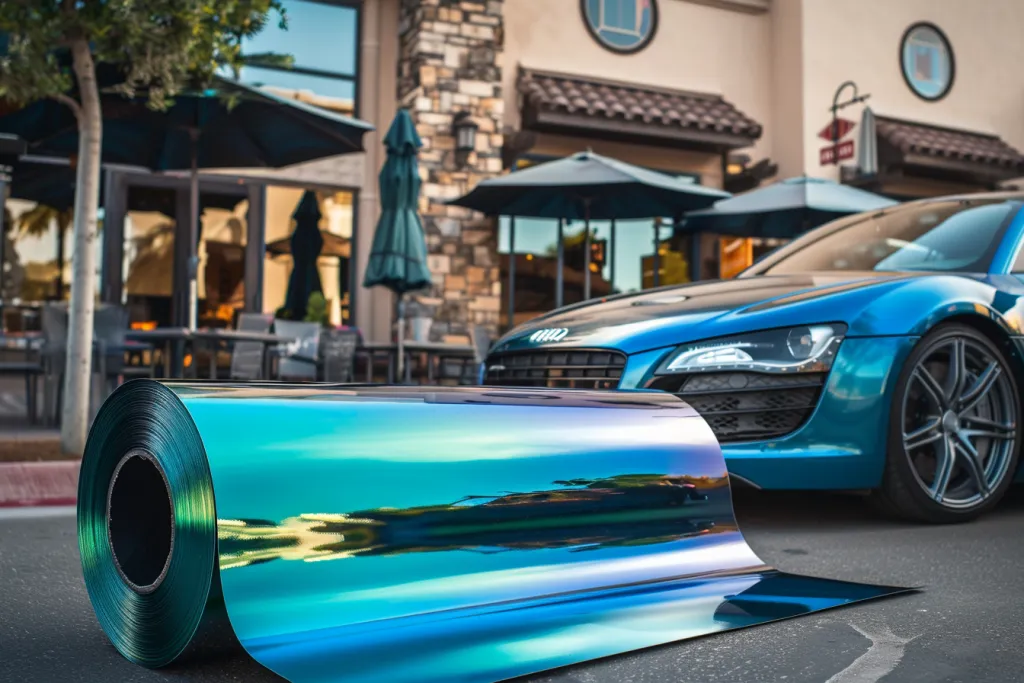
Choosing the right vinyl wrap involves considering several factors, including material quality, finish, and color. High-quality vinyl wraps are more durable, easier to install, and offer better finishes. It’s essential to select a wrap from reputable manufacturers to ensure longevity and ease of application. The finish of the wrap will significantly impact the overall look of the vehicle. Gloss wraps mimic the shine of traditional paint, while matte and satin finishes offer a more subdued, modern aesthetic. Metallic and textured wraps, like carbon fiber, add unique visual interest and depth.
Color choice is crucial in achieving the desired outcome. Beyond personal preference, consider how different colors might affect the vehicle’s appearance in various lighting conditions. Darker colors can make a car look sleeker and more sophisticated, while brighter colors stand out and make a statement. It’s also worth considering how the color and finish of the wrap will complement the vehicle’s lines and curves. Consulting with a professional installer can provide valuable insights into the best options for your vehicle and desired look.
How long do vinyl wraps last?
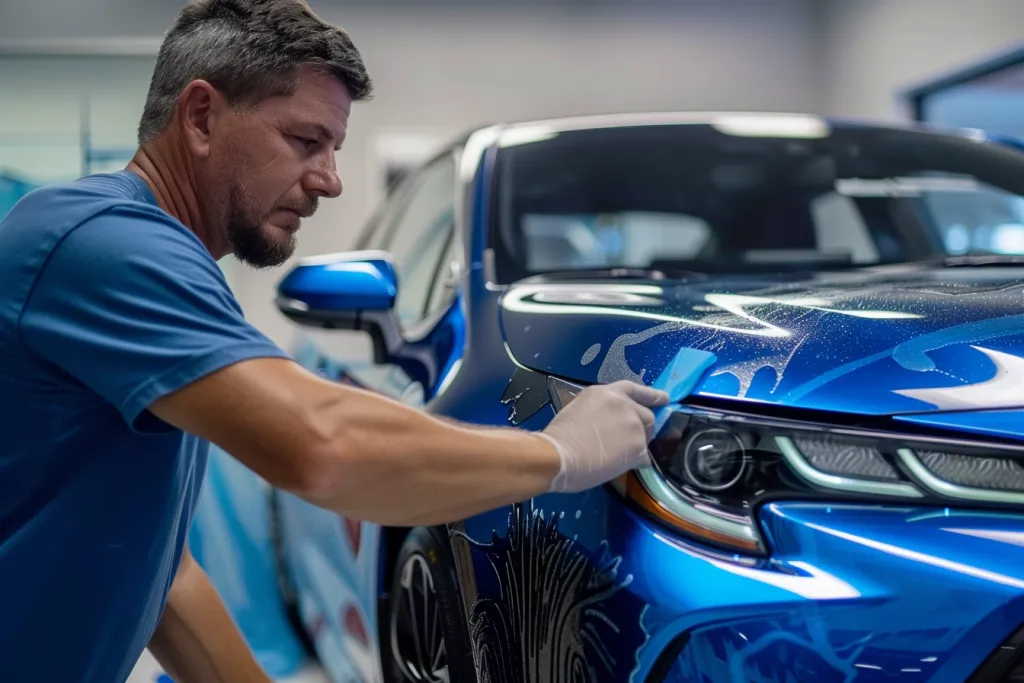
The lifespan of a vinyl wrap depends on several factors, including the quality of the material, the conditions it’s exposed to, and how well it’s maintained. On average, a high-quality vinyl wrap can last between 5 to 7 years. However, wraps exposed to harsh sunlight, extreme temperatures, and frequent abrasion may show signs of wear sooner. Proper care and maintenance can significantly extend the life of a vinyl wrap. Regular cleaning with mild, non-abrasive detergents and avoiding high-pressure washes can prevent damage and fading. Parking in shaded or covered areas can also protect the wrap from UV degradation.
Over time, vinyl wraps may begin to peel at the edges or show signs of wear, especially in high-stress areas like bumpers and door handles. Regular inspections can help identify and address issues before they spread. With proper care, a vinyl wrap can keep a vehicle looking fresh and protected for years, making it a cost-effective alternative to traditional paint jobs.
How to replace a vinyl wrap
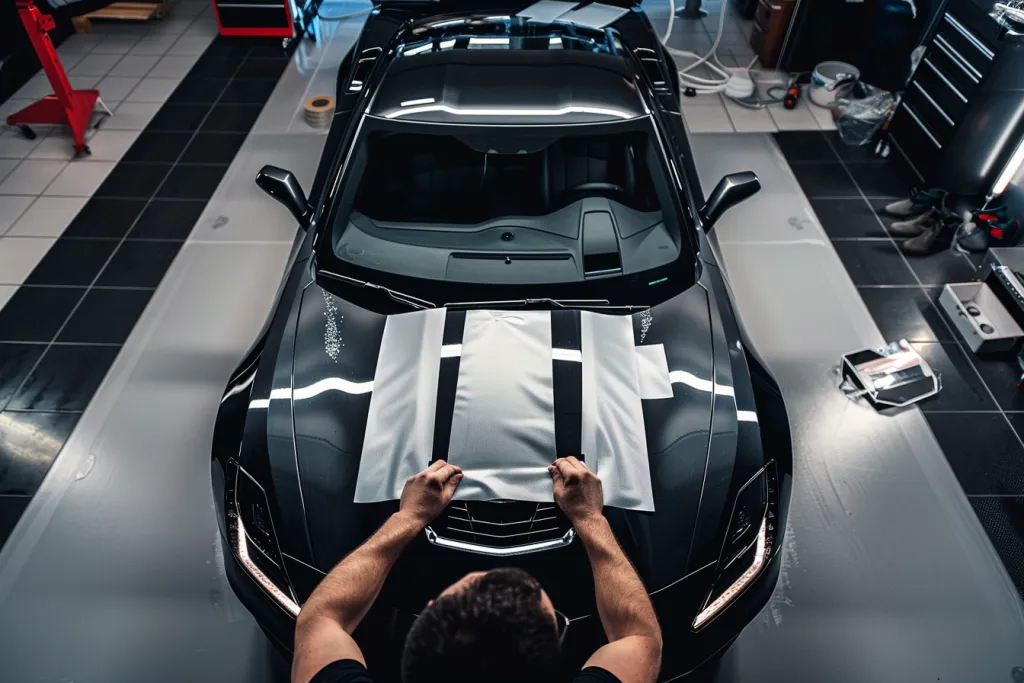
Replacing a vinyl wrap is a straightforward process, but it requires patience and attention to detail. The first step is to carefully remove the existing wrap. Applying heat with a heat gun or hairdryer softens the adhesive, making it easier to peel the wrap off the vehicle. It’s important to remove the wrap slowly and evenly to avoid leaving adhesive residue on the paint. Any remaining adhesive can be cleaned off with an adhesive remover or a mixture of soap and water.
Preparing the surface for the new wrap involves thorough cleaning and repair of any dings or scratches that could affect the wrap’s appearance. Once the vehicle is prepped, the new wrap can be applied. This process is best done by professionals, as it requires precise alignment and application techniques to avoid bubbles and wrinkles. With the right tools and expertise, a new vinyl wrap can rejuvenate a vehicle’s appearance and provide continued protection for the paint underneath.
How much does a vinyl wrap cost?
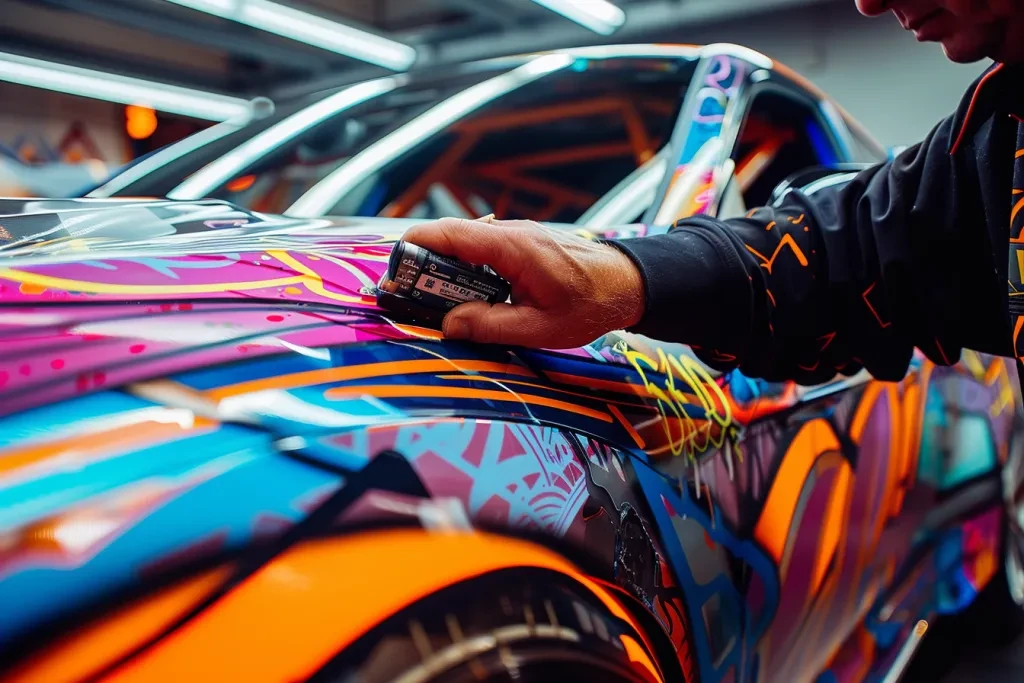
The cost of a vinyl wrap varies depending on several factors, including the size of the vehicle, the complexity of the design, and the quality of the wrap material. On average, wrapping a standard car can cost between $2,000 to $5,000. Larger vehicles like SUVs or trucks may cost more, while smaller cars or partial wraps (such as just the hood or roof) can be less expensive. The finish and brand of the vinyl also play a significant role in pricing, with premium materials and custom designs commanding higher prices.
While vinyl wrapping is an investment, it’s often more affordable than a high-quality paint job. Additionally, the benefits of protection, reversibility, and customization make it a valuable option for many vehicle owners. It’s important to get quotes from several professional installers to find the best price and to ensure that the job will be done correctly.
Conclusion
Vinyl wrap offers an innovative way to customize and protect your vehicle, combining style with practical benefits. Whether you’re looking to change your car’s color, protect its paint, or advertise your business, vinyl wrap provides a versatile solution. By understanding how to choose, maintain, and replace vinyl wrap, you can ensure that your vehicle stands out on the road for years to come. With its cost-effectiveness and reversible nature, vinyl wrap is a compelling alternative to traditional vehicle customization methods.
